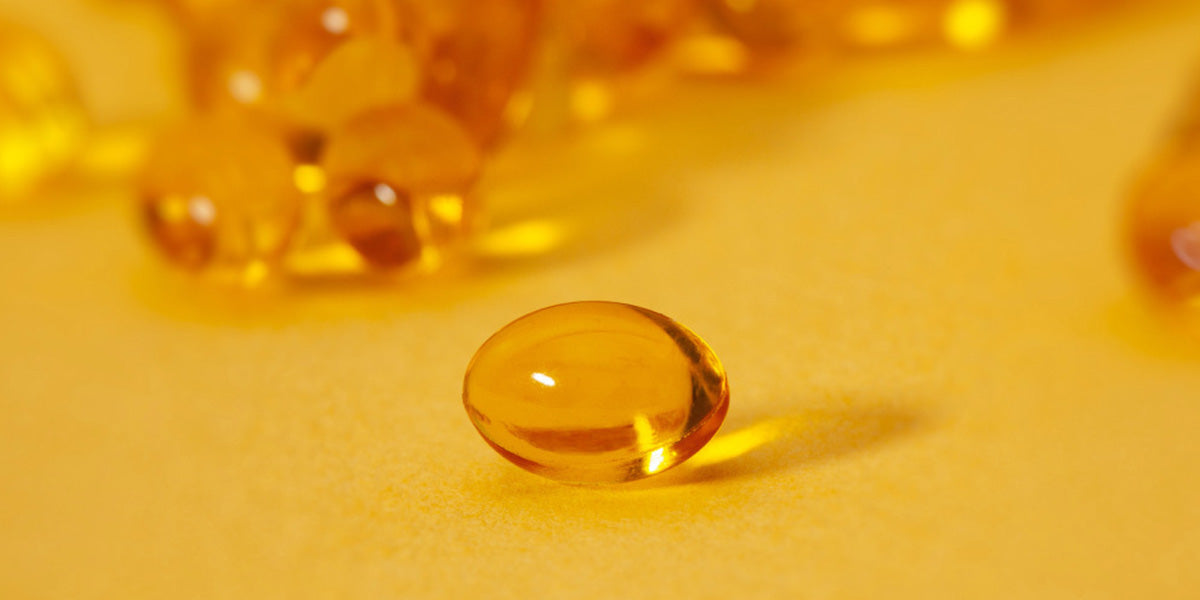Vitamin D is gaining more and more prominence for its health benefits and the role it plays in our body. It used to be primarily linked to bone health – but, as you’ve probably heard already, vitamin D benefits go far beyond that.
It has several forms (vitamin D2 and D3 being the major ones) and all of them play an important role in our overall well-being – right from improving our sleep, to protecting us from infections [1, 2].
Benefits of Vitamin D for our health and what is vitamin D good for?

Vitamin D regulates at least 800 genes in the human body [3], affecting almost every aspect of our health and body, including:
-
Bones
It largely affects the absorption of calcium and phosphorus, which are essential to the formation of bones [4].
-
Muscles
It strengthens our muscles by helping form the protein within them, and by enhancing our nervous system’s ability to contract them [5].
-
Immunity
It regulates the gene and proteins that help immune cells grow, mature, and function [6, 7]. Its deficiency can increase our susceptibility to infections and the risk of autoimmunity (a state where an individual’s immune system starts attacking healthy cells) [8, 9].
-
Heart
Lower levels of vitamin D can lead to higher blood pressure (HBP) or hypertension. HBP increases the strain on our coronary arteries, causing damage and increasing the risk of a heart attack [10, 11].
-
Mental health
Your happiness levels and vitamin D levels go hand in hand. The lower your vitamin D levels, the more likely you are to feel blue [12, 13].
Also read about the foods to boost your mental health in your mid-20s.
-
Skin and hair
It helps maintain the health of our skin cells [14]. There’s research that suggests vitamin D could also help create new hair follicles [15].
-
Overall health
Low vitamin D levels have been associated with diseases such as diabetes [16], symptoms of PCOS [17], kidney disease [18], and cancer [19].
The above are some of the most important functions of vitamin D but even after the constant emphasis on the importance of vitamin D, there’s a high prevalence of vitamin D deficiency throughout India, for all age groups [20].
How to make sure you’re getting enough vitamin D?

#1. Sun exposure
Exposing your arms and legs to the sun for just 15 to 30 minutes (twice a week) can be enough to prevent a vitamin D deficiency. Having said that, it also depends on the following [21]:
-
Skin complexion
The melanin (colour pigment) present in our skin absorbs the sun’s UV-B rays to protect our skin from radiation. So, the darker the skin tone, the more time it will take for your skin to produce the required amount of vitamin D.
-
Geography
The strength of the sun’s UV rays varies by location, influencing the amount of vitamin D it can produce in the body.
-
Sunblock
Wearing a sunscreen with a sun protection factor (SPF) of 30 can reduce vitamin D production in the skin by more than 95%.
#2. Sources of Vitamin D
Fishes like salmon, mackerel, etc. have a decent amount of vitamin D, but to reach the required amount, they would need to be consumed daily. On the other hand, plant-based foods do not have enough vitamin D in them – in this case, the sun becomes an exceedingly important source [22].
#3. Vitamin D supplements
While vitamin D fortified milk and oil are available in India, supplementation is key to fulfilling the daily requirement or treating a deficiency. Evidence suggests that vitamin D3 is thrice as potent as vitamin D2, making it a better option for a supplement [23].
What is Vitamin D deficiency
Vitamin D deficiency can be defined as either an insufficient intake of vitamin D, or a deficiency in the metabolization of vitamin D. The deficiency manifests itself in a number of ways, including in osteomalacia (soft bones), and rickets (rickets is characterized by soft bones that can become deformed by the body's attempts to repair them). Newer research indicates that there may be other consequences of a vitamin D deficiency. Dietary supplements can help people get more easily-absorbed vitamin D.
Symptoms of Vitamin D deficiency
A severe lack of vitamin D can lead to rickets, a condition in which children experience abnormal bone growth and muscle weakness. Vitamin D deficiency might not be a big problem for adults, but symptoms can include the following:
- Fatigue - People with too little vitamin D may feel fatigued and have headaches and poor cognitive skills, such as memory
- Bone pain- Low vitamin D levels can cause muscle pain and weakness, bone pain, and muscle spasms in people of all ages.
- Mood swings and depression- Vitamin D deficiency is associated with low mood and feelings of helplessness and sadness which can lead to depression.
Pro tip: Since vitamin D is fat-soluble, consuming it with fats would increase its absorption. It’s best to take your supplement with or after a meal.
While this captures a quick overview of the importance & benefits of vitamin D and how to consume it, you can read about it in more detail.
You can also read vitamins - myths and sensationalism.



